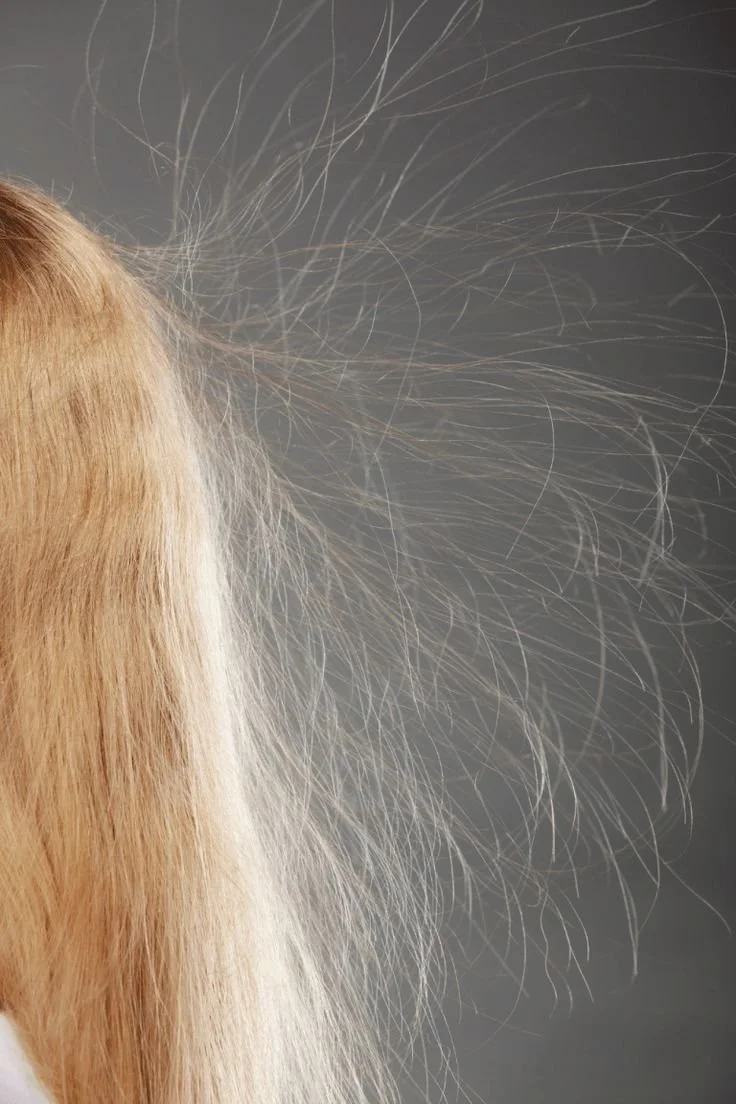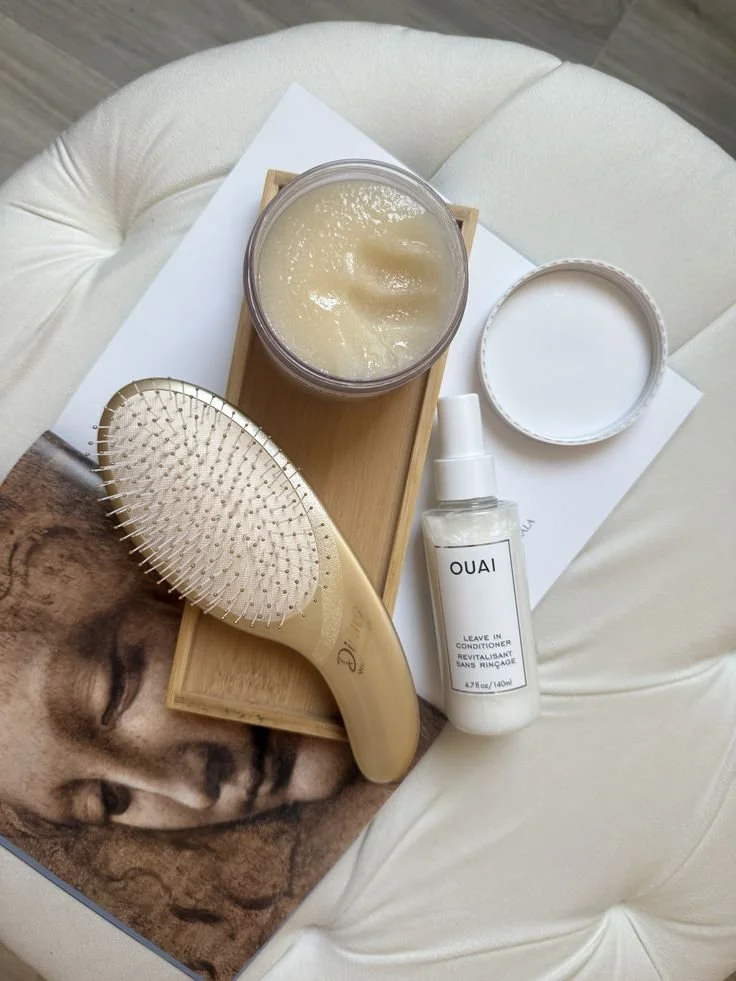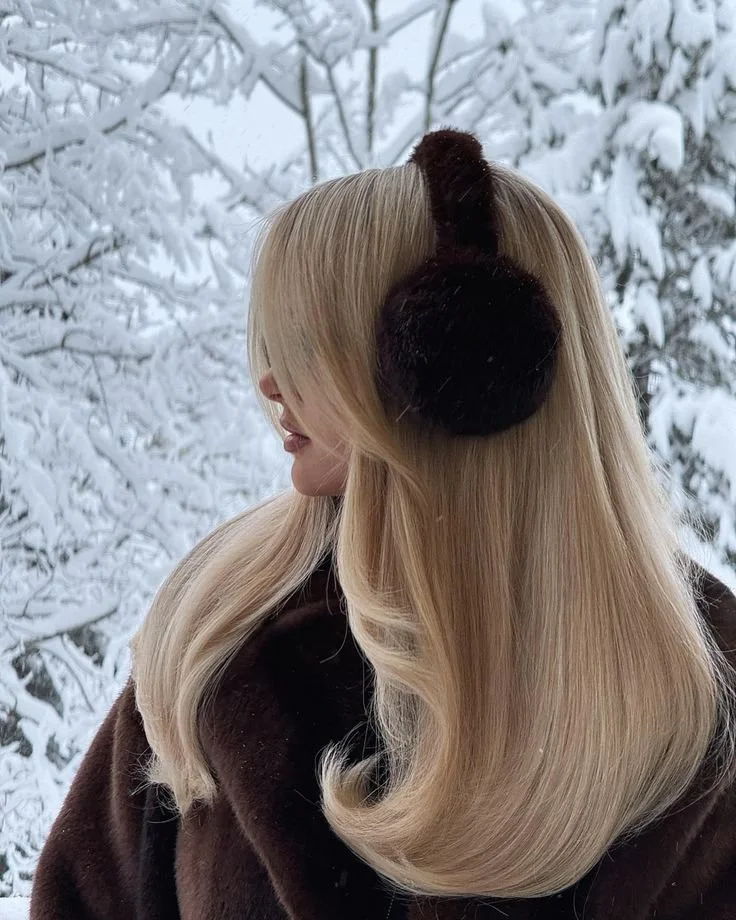How to Protect Your Hair This Winter: Easy Solutions for Dry, Damaged Hair
Cold weather slows down hair growth and leaves strands dry, brittle, and more prone to breakage. Winter haircare becomes crucial when healthy locks turn into a frizzy, lifeless mess.
The colder months bring unique challenges for our hair. Winter air lacks moisture that strips away vital hydration. Indoor heating makes things worse by depleting our hair's natural oils. A solid winter hair care routine then becomes vital to keep our locks healthy.
Let's explore practical winter hair care tips that will keep your hair hydrated, strong, and beautiful through the cold season. These solutions will help you maintain healthy hair naturally until spring, whether you struggle with static, breakage, or just want to prevent winter damage.
Understand Winter Hair Challenges
Winter creates the perfect storm for your hair's health. Cold outdoor air and indoor heat team up to cause problems. The dry winter air steals moisture from your hair strands. The problem doesn't end when you step inside because heating systems continue to pull out moisture.
Your hair's natural protective lipid layer breaks down as it loses hydration. The result? Your cuticle becomes rough instead of smooth. Hair strands start to separate and create unwanted volume that becomes hard to manage. The dry conditions also cause static electricity, which gets worse when you wear wool or synthetic fiber hats.
People with curly hair face tougher challenges in winter. Their hair tends to be naturally drier and more porous, so it loses moisture faster. Those with textured hair struggle because natural oils take longer to move down curved hair shafts.
How to identify winter hair damage:
Finding shorter broken hairs of varying lengths on your pillow
Noticing your hair feels drier and frizzier than normal
Hair losing its natural elasticity and snapping easily
Appearance of more split ends than usual
Hot water makes these problems worse by stripping away natural oils. This creates an ongoing cycle of increasing dryness. Your scalp suffers too - it becomes tight, itchy, and sometimes flaky. People often mistake this condition for dandruff.
Build a Winter Hair Care Routine
Your winter hair care routine should start with the right cleansing products. Switch to hydrating, sulfate-free shampoos that have argan oil, coconut oil, or shea butter. These ingredients will keep your hair moisturized when it's dry and brittle, without removing its natural oils.
Conditioning is a must after every wash. Pick a moisturizing conditioner that matches your hair type. If your hair gets very dry in winter, a leave-in conditioner will help keep it hydrated between washes.
Deep conditioning treatments should happen weekly to keep your hair healthy. Hair masks filled with oils that keep hair fed will turn brittle strands silky soft.
Cut down on heat styling since it makes your hair even drier. When you need to style with heat, don't forget to use heat protection products first. Try to work with your natural texture or try protective styles like braids, twists, and buns that shield your hair from harsh weather.
Get your hair trimmed every 6-8 weeks. This stops split ends from moving up the hair shaft and causing more breakage along the strands.
Your nighttime routine matters too. Sleep on silk or satin pillowcases to cut down on friction and keep moisture in. This helps your hair hold onto all the hydration you've worked to give it.
Overnight and Lifestyle Tips
Your daily winter hair care routine works great, but nighttime is a chance to give your hair deeper treatment. Silk or satin pillowcases can reduce friction that breaks and frizzes your hair while you sleep. These fabrics won't absorb your hair's natural oils like cotton does, so your hair retains moisture through the night.
Dehydrated winter hair responds well to overnight treatments. You can transform dry locks by applying a conditioning mask before bed and covering with a shower cap. Just rinse it out in the morning. Products that keep people fed with ingredients like blue sage, honey, coconut oil, or bond-building technology will repair your hair as you sleep.
Don't wash your hair too much in winter. Dry shampoo helps you go longer between washes and protects your follicles from winter damage by keeping those natural oils intact. Just apply it and work through with your fingers or brush to soak up extra oil and keep your style looking fresh without heat.
What you eat makes a huge difference to your hair's health in winter. Sweet potatoes and dark leafy greens pack beta carotene that fights dryness. Oily fish, raw nuts, and avocados give you healthy fats for shine and stop flaking. Your hair gets stronger against breakage with vitamin C from citrus and kiwi, while biotin from egg yolks and walnuts helps it grow healthy.
Conclusion
Winter weather creates without doubt the most important challenges for our hair health. The combination of cold outdoor air and dry indoor heating damages our hair and makes it brittle. You need an all-encompassing winter hair care strategy to keep your hair healthy during these harsh months.
Your hair needs extra protection against moisture loss through several proven methods. A switch to hydrating, sulfate-free products helps preserve your hair's natural oils. Deep conditioning treatments once a week restore lost moisture and provide nutrients to repair damaged hair.
Simple lifestyle changes make a vital difference in winter hair protection. Silk pillowcases cut down friction at night, and overnight conditioning treatments work wonders while you sleep. Washing your hair less often preserves natural oils that shield it from winter elements.
Good nutrition plays a key role too. Foods packed with healthy fats, beta carotene, and vitamin C make your hair stronger from within and more resistant to cold-weather damage.
Note that regular care throughout winter prevents damage that takes months to fix. These simple solutions help maintain beautiful, healthy hair even when winter hair problems feel overwhelming. The right approach lets you beat static, breakage, and dryness to keep your locks hydrated, strong, and vibrant until spring arrives.





